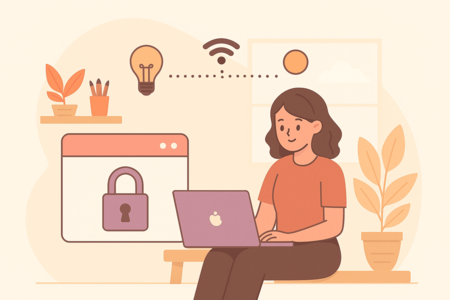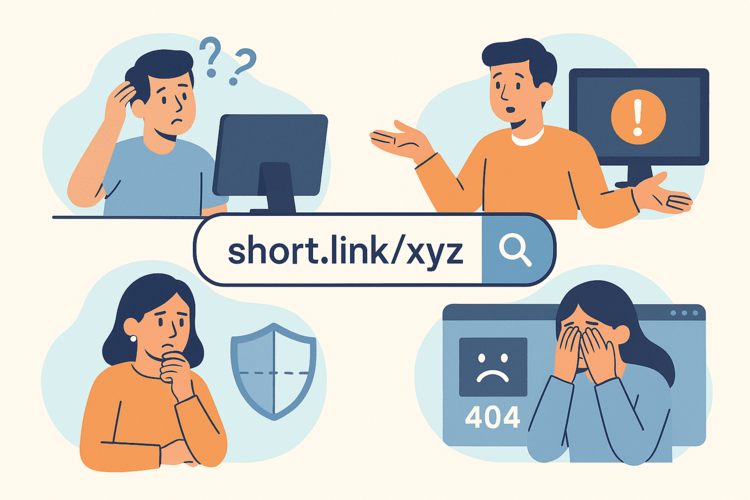Imagine: you've been pumping up your account on Upwork or Fiverr for years, you have reviews, regular clients, and a stable income in foreign currency. And then — bang! — a message: "Access is restricted in your region." That's it. You can't upload an order or respond to a client. This has already happened to tens of thousands of freelancers in different countries. And the first reaction is always the same: panic. The second: "What to do now?".
The good news: there is a way out. And not just one!
Why do platforms block regions?
The reasons are different:
Sanctions and policies. Upwork, Payoneer, or PayPal may restrict access to users from certain countries. This isn't always a moral issue—it's often just a legal risk.
Fraud and spam. If there are too many "leftist" accounts coming from a region, the platform turns on strict filters.
IP filtering. Some services simply "cut off" IP address ranges. You seem to be there, but the system doesn't let you in.
It seems unfair, but freelancing here is no different from Netflix or Spotify: the company dictates its own rules of the game.
Why is this not a verdict?
Freelancing is not a specific platform. It is a marketplace where there are clients and performers. If you are not allowed through the central entrance, it does not mean that you cannot enter through another door.
Moreover: in modern conditions, blocking bypass tools have become part of the basic "starting package" for a freelancer. Just like a good portfolio or a LinkedIn account.
How to bypass the block and stay in the game?
And now the most interesting thing. Being blocked doesn't mean that your career is over. It's just another obstacle that can be overcome. Because freelancing is about flexibility and resourcefulness. If you're not allowed in, there's always a window, a basement, or a back door. So let's figure out how to stay in the game and not lose clients even when the platform has decided "you're not meant to be here."
A VPN is a basic first aid kit
A VPN changes your IP address so that the platform thinks you are logging in from a different country. This is the first thing most people try.
Pros: simple, fast, sometimes free.
Cons: unstable IPs, frequent disconnections, slow speeds. And also — security risks if you download "left-wing" VPNs from questionable sites.
A VPN works for "checking in and out," but if you plan to work every day, it's not enough.
Windows VDS — a stable solution
And this is where the fun begins. Instead of disguising yourself, you can… live in a virtual computer.
Windows VDS from Hyperhost is a remote desktop in a data center. You connect to it and all the work happens there:
A permanent IP address from the desired country.
You can install browsers, instant messengers, and work programs.
The speed is like a local PC, and often better.
Everything under control: from security to backup.
In fact, you rent a computer "abroad." You work on it, and the client doesn't even realize that you are sitting in Lviv, Dnipro, or Kharkiv.
3. Direct work with clients
Many people are leaving platforms altogether. Instead of Upwork, they are using LinkedIn, instead of Fiverr, they are using their own website or Telegram. It is important to have your own infrastructure: email, portfolio, CRM. And again, it is convenient to keep all this on a VDS.
Let's look at the format through the prism of life
After her Fiverr account was blocked, a designer from Kyiv switched to Windows VDS, registered a new profile, and continues to work. Old clients returned through private orders.
A programmer from Kharkiv uses VDS for GitHub and client servers. He says: "Now it's even calmer, because all the work is in one environment, and the laptop can even burn out."
The SEO specialist combines VPN for "quick checks" and VDS for stable work with client accounts.
What about security?
This is the main question. And here the difference is tangible:
A VPN is a rented "tunnel" where you never know who is seeing it.
VDS is your personal “office.” You set passwords, updates, antivirus, and make backups.
Add two-factor authentication and the risks are minimal.
Typical errors when bypassing locks
But there is another side of the coin. Bypassing the block is not a problem, but it is at this stage that most people “get lost”. Someone downloads the first free VPN with casino advertising, someone forgets about security and leaks all their data, and someone gets so carried away with experiments that they lose access to their account forever. To avoid falling into this trap, let’s analyze the typical mistakes when bypassing blocks — and how to avoid them:
Using free VPNs is like riding a broken bike to work: you can, but not for long.
Sharp IP jumps. Today you are "from Poland", tomorrow you are "from Canada". The platform sees and bans.
Mixing accounts. If one account is logging in from a local IP and the other from a VDS, that's a red flag.
Lack of a plan B. It is better to immediately have alternative accounts, email, and backup channels of communication with customers.
Conclusion
Freelancing may be blocked in your region, but that doesn't mean you have to give up. A VPN will help quickly, but not for long. If you're serious about your career, a Windows VDS is the best solution.
This is your new work computer in the cloud: with a permanent IP address, stable speed, and full control. And most importantly, with access to freelance, clients, and money.
Freelancing will always find a way. The only question is whether you are ready to find it.


.png)

